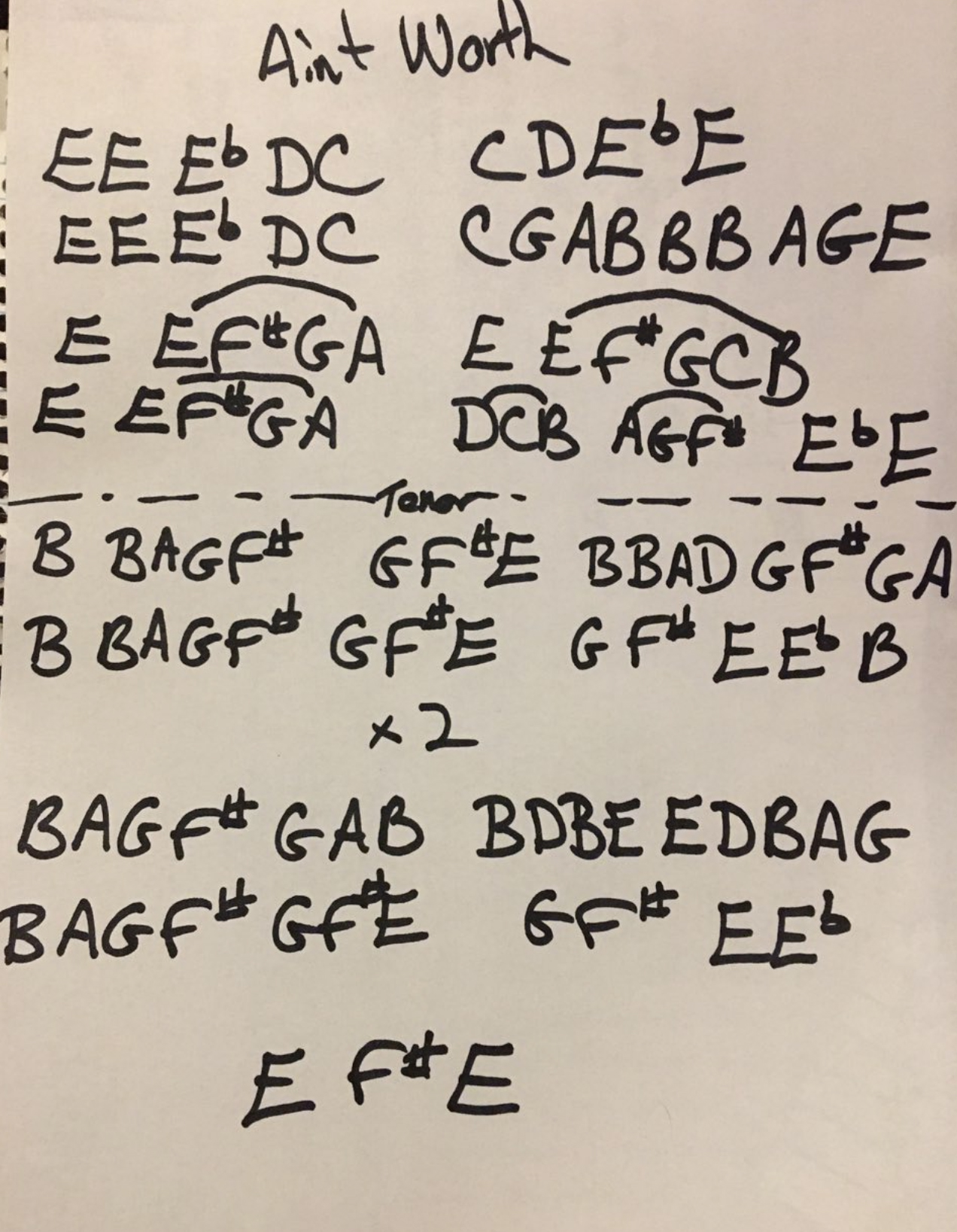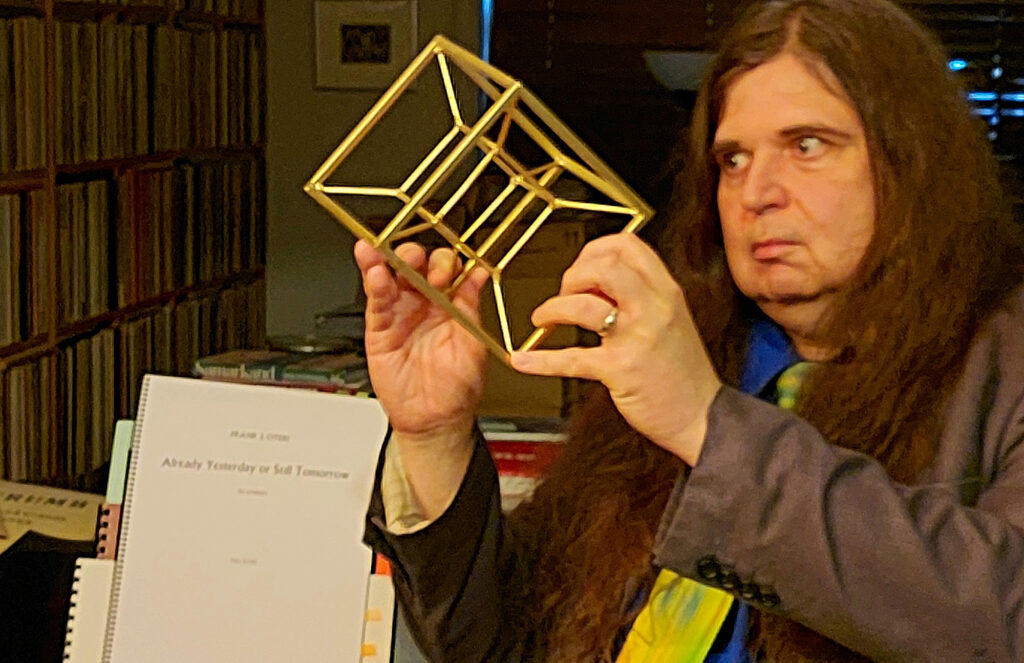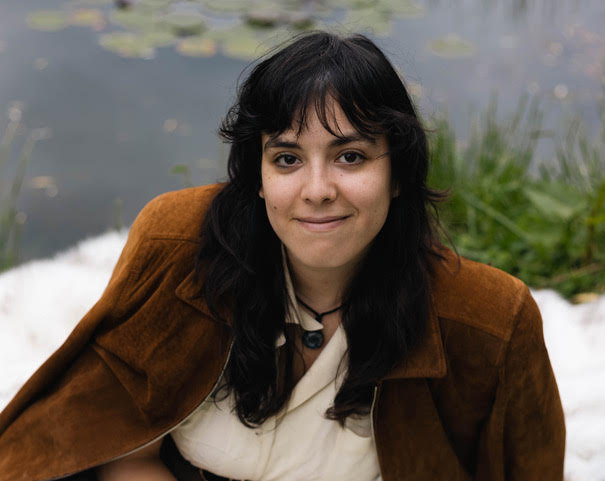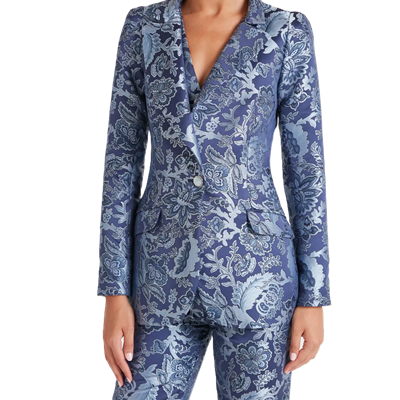Growing up in Soviet-era Lithuania where people were often afraid to express their real feelings, �ibuokl? Martinaityt? discovered early on that music was safer than language and a realm where she could express her innermost feelings unedited. Now an...
Growing up in Soviet-era Lithuania, where people were often afraid to express their real feelings, �ibuokl? Martinaityt? discovered early on that music was safer than language and that it could enable her to express her innermost feelings without self censoring. It ultimately led her on the path to becoming a composer whose music is performed all over the world.� Although �ibuokl? now divides her time between a democratic Lithuania and the United States, her formative experiences have led her to explore a sonic vocabulary, which though frequently inspired by nature and always deeply emotive, is completely abstract and open to multiple interpretations.
�Music is enough; not only enough, it�s more than enough,�� she explained to me during a Zoom conversation last month. �It surpasses words; it surpasses the meaning of words because it can go to unknown places and unexplainable places. The beauty of music is that if you are telling some story, some inner story that you don�t want to reveal the details of, you could still tell the story and the listener would relate to that story. � [T]hey create their own story in their minds because nobody�s telling them what to think. But they have the emotional components that come up, like physiological and psychological reactions to the sounds that they hear.�
This approach to narrative is an ideal modus operandi when creating an orchestral composition or a piece of chamber music, and �ibuokl? has made significant contributions to both of these idioms which have resonated with audiences both in the concert hall and on recordings. Horizons, a 2013 symphonic tour-de-force, has been performed in multiple cities and has been recorded twice. Starkland�s recording of her enhanced piano trio In Search of Lost Beauty was described by Richard Whitehouse in Gramophone magazine as �one of the most significant releases thus far� on that label, praising her music�s �potency.� Last season, soon after the Finnish label Ondine released the Lithuanian National Symphony Orchestra�s recording of her haunting 2019 Saudade, a work inspired by the death of her father as well as her immigration to the USA, the work received a performance by the New York Philharmonic causing Zachary Woolfe in The New York Times to describe her orchestral writing as �intriguingly agitated.� Bang on a Can�s record label Cantaloupe Music recently released her 2020-21 Hadal Zone, an immersive sonic experience for a quintet of low-ranged instruments and electronics evoking the bottom of the ocean. But how does this play out when composing vocal music?
In our talk, �ibuokl? described her reticence to use words when she first received a commission to write a work for the choir Jauna Muzika in 2010 from the annual Gaida Festival, the most prominent new music festival in Lithuania. After feeling more drawn to the vowels of words in certain texts than the actual words, she ultimately decided to eschew text and set only vowels.
�When I made that choice of not using language, I felt, once again, very liberated,� she admitted, which makes perfect sense considering her life�s experiences. �Music was the way to have that freedom and music was the way to express myself in an absolutely free way and nobody could stop me from that. � That sense of freedom, I think, stayed with me to this day. That�s why music is so precious to me. And that�s why I don�t want to use narratives and text because I feel they would put me into some kind of perceptional prison.�
That first choral work, The Blue of Distance, which was subsequently performed and recorded by the San Francisco-based choir Volti, has led to two others thus far: Chant des Voyelles, which was commissioned by Volti in 2018, and Aletheia, a 2022 work created in response to Russia�s invasion of Ukraine which was premiered by the Latvian Radio Choir during last year�s edition of the Baltic Music Days. All of these pieces were without words although that does not prevent her from conveying a visceral narrative, as she acknowledged in describing Aletheia. �I was thinking � about voice being the first and the very last instrument that we might have in our lives and all those people in the war, how they still have their voices with them and they could express themselves in this rage or scream, even as they are being killed.�
However, �ibuokl? confessed that the piece she is working on right now, a half-hour song cycle for female voice and orchestra, will actually have words. �Yes, I know, it�s quite unusual for me, but I must say I�m enjoying working with it, although I have mixed feelings about how I feel about text. But I will insert some vowel singing without text because I can�t go without it. But it�s this text by this very, very old female poet from more than 4,000 years ago called Enheduanna. � It�s fascinating how the poetry that was composed such a long time ago still contains the same subject matters that are very much today�s topics, like war and migration of people and environmental concerns and catastrophes and gender bending identities. It�s just incredible how all the issues remain the same over and over.�
From that silence that I hear in the world then comes the inner experience which resonates with that. You have to calm down in order to even perceive those sounds, because if you are too turbulent inside, if there's a lot of agitation or a lot of thought processes that are happening, it's very hard to hear anything, because all you hear are your own thoughts.

�ibuokl? Martinaityt?
I was composing my own melodies and then telling stories about how I saw the world. At some point, all those words disappeared. I don't know why. Then only music remained, and I didn't need a text, I didn't need lyrics anymore. I thought that music is enough; not only enough, it's more than enough. It surpasses words; it surpasses the meaning of words because it can go to unknown places and unexplainable places.

�ibuokl? Martinaityt?
The beauty of music is that if you are telling some story, some inner story that you don't want to reveal the details of, you could still tell the story and the listener would relate to that story. But they relate in their own way and in a way they create their own story in their minds because nobody's telling them what to think.

�ibuokl? Martinaityt?
How many stories we can tell in like 10 minutes or 20 minutes--the density of material becomes the flow of time. So if we give a lot of material, then the time kind of quickens, and the perception becomes that we experience a lot of things. Maybe some of them don't make sense. If we give a lesser amount of stories, maybe it's just one line, or one narrative, then the time can slow down...

�ibuokl? Martinaityt?
I must say I'm very curious how long pieces are. So when I hear something at the concert before the beginning of the piece, I look at the watch because I want to know how long the piece was, because I want to know if my inner perception of that piece was accurate.

�ibuokl? Martinaityt?
My inner compass is directed at that experience of erasing time, of erasing self, erasing all the limits that we have of time and space and dimension. But do I achieve it? Sometimes I think I do, but not for long.

�ibuokl? Martinaityt?
No court in the world will say this music is about destruction or some horrible things or something that wasn't allowed by the Soviet mentality and regime. In a way, music was a safe place, the safest place, because in everyday life, we had to think what to say, what not to say when you are talking to somebody and there was always this editing that was happening in the mind and editing of information.

�ibuokl? Martinaityt?
That concept of freedom was so crucial in my mind as I was growing up and I knew that I will never give away that freedom that I create for myself. So music was the way to have that freedom and music was the way to express myself in an absolutely free way and nobody could stop me from that.

�ibuokl? Martinaityt?
Music is so precious to me. And that's why I don't want to use narratives and text because I feel they would put me into some kind of perceptional prison.

�ibuokl? Martinaityt?
You mentioned Ustvolskaya and that ability to compose whatever you want. It didn't mean that people would be playing your music or the music would be performed. But what was important was that you were able to do it, just to prove to yourself that you have the agency, you have the independence, and you can do whatever you want, at least on paper. And if nobody sees it, if nobody hears that, that's okay, because that's a second step.

�ibuokl? Martinaityt?
When I started composing I wasn't so eager that people would start playing my music right away because I wanted to keep it for myself for a very long time. And then at some point, I felt ready to give it to the world. I felt ready to give it to others because I had to know myself first.

�ibuokl? Martinaityt?
When I got a choral commission, I was thinking I need a text because that's what everybody does, right? I was looking at multiple texts in English, in Lithuanian, then I thought maybe in Latin. I started writing down the excerpts that resonated with me. Then I was thinking how to put it into music and I started thinking, "What if I could use only vowels of sounds, but not entire words?" I wrote down vowels from the excerpt that I liked. And then I was thinking: So why am I doing this? I could just use vowels or syllables, whatever I want. Why do I have to extract them from the existing text and then say, "Oh, the basis of this piece is this text, but I'm using only parts of the words that are vowel-based."

�ibuokl? Martinaityt?
I was thinking also about voice being the first and the very last instrument that we might have in our lives and all those people in the war, how they still have their voices with them and they could express themselves in this rage or scream, even as they are being killed.

�ibuokl? Martinaityt?
Being a musician and composer, I must say I prefer music without visuals ... If there's an additional video component or some kind of visual component, sometimes I just want to close my eyes and listen to the music.

�ibuokl? Martinaityt?
Because I am in New York, I become a little bit exotic also to Lithuanians, because I live elsewhere, right? And then because I am from elsewhere, I am exotic to the American audiences. It allows me to be of both places, but at the same time of neither. ... Maybe I do have the best of both worlds. But in other ways I don't because wherever I go, I still don't feel like I'm just in that place...

�ibuokl? Martinaityt?
Somehow that difficult time for everybody became unbelievably successful for me. And I don't know what the recipe of it was. But I think maybe because there was no outer life happening, I was able to really focus my mind on a single thing and that single thing was music.

�ibuokl? Martinaityt?
After the pandemic, we all want to experience life in a kind of catch up and to have more experiences faster than we are used to. So the slowness of time is less appealing right now to us as it would have been maybe before the pandemic.

�ibuokl? Martinaityt?
It's rather through the experience than through words or through direct messages and saying do something about it. But yes, of course, do something about it would be the message.

�ibuokl? Martinaityt?
It's fascinating how the poetry that was composed such a long time ago still contains the same subject matters that are very much today's topics, like war and migration of people and environmental concerns and catastrophes and gender bending identities. It's just incredible how all the issues remain the same over and over.

�ibuokl? Martinaityt?
The post �ibuokl? Martinaityt?: Unexplainable Places first appeared on New Music USA.
The post �ibuokl? Martinaityt?: Unexplainable Places appeared first on New Music USA.
View Entire Post











